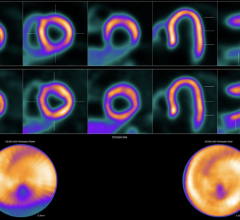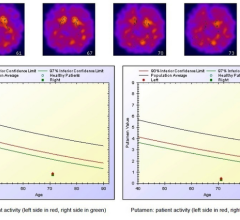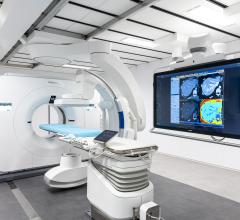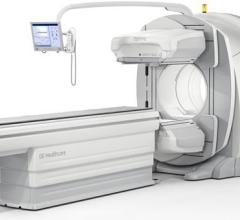November 27, 2007 - Gamma Medica-Ideas Inc. has announced its collaboration with Mayo Clinic on a new breast cancer research project, the primary goal of which is to document the advantages of using GM-I’s LumaGEM dual-headed Molecular Breast Imaging (MBI) technology for the early detection, diagnosis and treatment of breast cancer. The project is funded by a grant from the National Cancer Institute.
Researchers also hope to prove LumaGEM’s capabilities in breast cancer staging, therapy planning, monitoring and follow-up. The two-phase collaborative project will enroll approximately 500 patients. Project researchers will use the LumaGEM MBI imager to noninvasively define the characteristics of a patient’s breast cancer cells at a molecular level by using established and novel radioactive markers. During Phase I, a dual-headed CZT LumaGEM will be installed at Mayo Clinic. In phase II, an additional LumaGEM system will be installed at Cedars-Sinai (Los Angeles, CA). Dr. Iraj Khalkhali (Los Angeles, CA) will take delivery of yet another LumaGEM. The patient studies will be conducted with all three systems to compare the diagnostic capabilities of this device to Magnetic Resonance Imaging (MRI). Mayo Clinic will subsequently evaluate promising new radiopharmaceuticals for the detection of breast cancer. Finally, Cedars-Sinai will conduct a study demonstrating the dual-isotope capability of this system and compare the diagnostic potential of both isotopes.
Gamma Medica-Ideas’ LumaGEM is a dedicated gamma camera used for diagnostic imaging, including MBI. The LumaGEM system features fully solid state digital detection utilizing eV Products Cadmium Zinc Telluride (CZT) to provide superior resolution compared with the conventional scintillation camera technology traditionally used in gamma cameras, the company says. It also reportedly allows minimal dead space at the edges of the image, permitting the closest access to the chest wall.
For more information: www.gm-ideas.com


 January 19, 2024
January 19, 2024 








